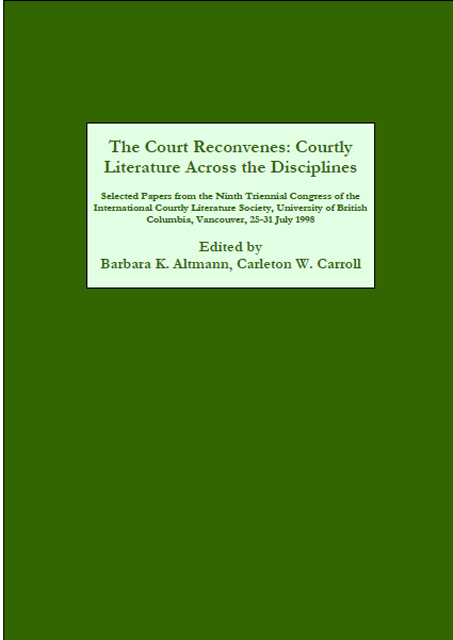 The Court Reconvenes
The Court Reconvenes The Figure of the King in Medieval German Courtly Literature
Published online by Cambridge University Press: 31 March 2023
Summary
In his Historia regum Britanniae, completed in 1136, the Oxford cleric Geoffrey of Monmouth tells the following story:
[In England] there appeared a star of marvelous bigness and brightness, stretching forth one ray whereon was a ball of fire spreading forth in the likeness of a dragon, and from the mouth of the dragon issued forth two rays, whereof the one was of such length as that it did seem to reach beyond the regions of Gaul, and the other, verging toward the Irish sea, did end in seven lesser rays. At the appearance of this star all that did behold it were stricken with wonder and fear. Uther, also, the King's brother, who was leading a hostile army into Wales, was smitten with no small dread, insomuch as that he betook him unto sundry wizards to make known unto him what the star might portend. Amongst the rest, he bade call Merlin, for he also had come along with the army so that the business of the fighting might be dealt with according to his counsel. And when he was brought unto the King and stood before him, he was bidden declare what the star did betoken. Whereupon, bursting into tears and drawing a long breath, he cried aloud, saying:
“O loss irreparable! O, orphaned people of Britain! Dead is the renowned King of the Britons, Aurelius Ambrosius, in whose death shall we also be dead, save God deign to be our helper! Wherefore hasten, most noble Duke Uther, hasten and tarry not to do battle upon thine enemies! The victory shall be thine, and King thou shalt be of the whole of Britain! For yon star doth betoken thee, and the fiery dragon that is under the star! The ray, moreover, that stretcheth forth toward the regions of Gaul, doth portend that a son shall be born unto thee that shall be of surpassing mightly dominion, whose power shall extend over all the realms that lie beneath the ray; and the other ray signifieth a daughter whose sons and grandsons shall hold the kingdom of Britain in succession.” (Evans VIII.14–15, 169f.)
- Type
- Chapter
- Information
- The Court ReconvenesCourtly Literature across the Disciplines: Selected Papers from the Ninth Triennial Congress of the International Courtly Literature Society, University of British Columbia, Vancouver, 25-31 July 1998, pp. 27 - 40Publisher: Boydell & BrewerPrint publication year: 2002
- 1
- Cited by


